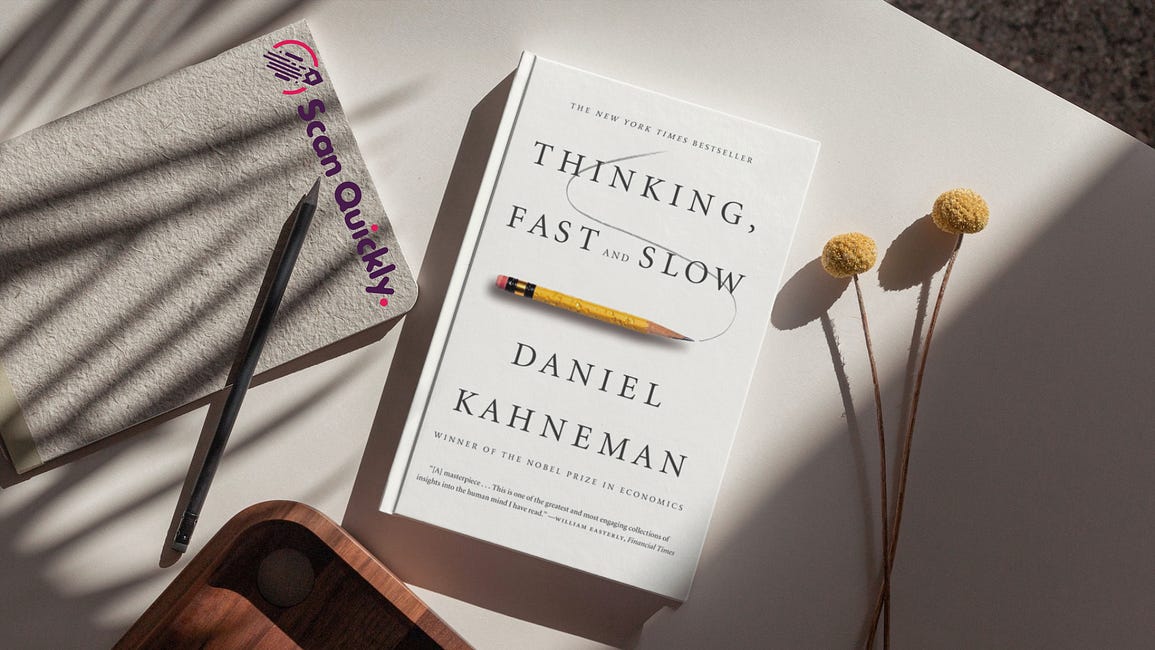Imagine a world where most of what you look at and bite into is sculpting your neural pathways, potentially leading to cognitive decline. The science behind the subject is deep, proving that our choices carry a heavy weight when it comes to our precious gray matter.
Your brain is essentially the most complicated organ in the universe. It's estimated to have a hundred billion nerve cells with more connections than stars in the universe. That's a heavy thought because information passes through it at 268 miles an hour. So this is a very complex organ we're talking about. And the health of your brain impacts the difference as to whether you're happy or sad, whether you're healthy or sick, more creative or inflexible. [Source: UConn Today, "The Most Complicated Object in the Universe]
It's also an organ of judgment, personality, character, and innovation. When your brain works right, your body feels right. When your brain is troubled, you're so much more likely to have trouble in life.
I know that I need to stretch my mind, exercise it and make it uncomfortable often, so that I don't have trouble with it later in life. I want it to become smarter, to retain more information, to stretch its capabilities. So today I'm going to touch on how we as a society stress and damage our brains in two ways, technology and dietary poisons.
Now both are critical to overcome, both are equally important. So I'll start with technology because that's the elephant in the room today.
Technology
A healthy mind digests, it thinks, it contemplates, it analyzes thoughts. But it can't do this on its own. It takes a lot of hard work and that's more than just an education of funneled facts of concentrating, reading and memorizing like they do in modern schools.
To think deeply, you have to form new thoughts. You have to take information and go places with it. You have to mull it over and throw it in different directions and see what original thoughts come back to you. It takes a disciplined effort and it forces your mind to get stronger, just the same way that your body gets stronger with exercise.
The only way to love that process, though, is to do it consistently with superior input, not shallow content. And that shallow content is so prevalent today, isn't it? Your mental diet has to be of superior quality. Read superior things. Take in superior information. Just like you would with food. You don't want to take in junk food. You want to eat good, wholesome foods.
Both affect your health tremendously. And here's where I'm headed with this. Our deep reading, for example, has become a struggle for many, many people. Books are essentially replaced by screens that not only change the way we navigate a piece of writing, they also influence the degree of attention we devote to it and the depth of our immersion in it.
So as you’re reading, you might check your email when it dings, your stocks, you might play a game when you're bored. You might read a bunch of pages in that book and then you all of a sudden realize you don't have any idea what it was talking about because you were busy with three other things at the same time. Multitasking doesn't work really well. Your attention gets scattered. Your learning becomes harmed because of this practice.
So it becomes all but impossible to continuously exert the discipline to not be distracted by everything that goes on around you, by the rings and the dings and the music and everything that distracts us with phones and this technology. Experiments indicate that as we reach the limits of our working memory, it just becomes harder to distinguish relevant information from irrelevant information, signal from noise.
We've just become mindless consumers of data today, but yet we rely on limited mental shortcuts because we skim the information we digest. But this also eases the cognitive load of making a decision. It leaves very little or no room to improve the decision-making process to see alternate solutions or to come up with novel or new ideas.
The concept of "bounded rationality" was introduced by Herbert Simon, a Nobel Prize-winning economist. Bounded rationality suggests that humans make decisions with limited information and cognitive abilities, relying on heuristics or mental shortcuts. That applies to reliably today to our phone addictions. Skimming information without absorbing it is just basically being willfully blind. It causes people to remain unseeing when they face new situations where they could and should know facts. But they don't because it makes them feel better not to know. I mean, we see this all the time.
It's basically two levels of thinking that I'm talking about. In his book, “Thinking Fast and Slow” Daniel Kahneman says we use two primary modes of thinking.
Mode 1, he says, is intuitive, instant, unconscious, automatic and emotional. Learning in any environment is increasingly becoming faster — but we rarely stop to measure their effectiveness. So most people forget almost everything they learn. I think stats show the average person only retains 10% of what they learn in one year.
Mode 2 is slow, rational, conscious, reflective, reasoning and deliberate. But at any point in time, your active thoughts and actions vary depending on which of those two modes is running. Slow, deliberate, focused and logical thinking is often applied to complex problems.
Aristotle once said,“ It is the mark of an educated mind to be able to entertain a thought without accepting it.”
We think deliberately at times, but we do it very little. We don’t reflect and make those slow decisions. Because in many situations, our response is automatic, isn't it?
And so we have to hone that type of thinking skill, that slow reflective one. Shallow thinkers rarely think beyond the obvious. They'll take information at face value and solve problems in what's called a first level solution right off the top of the brain. That's why Facebook and other apps are so popular. It's easy to digest news at face value. It's easy to be lazy and not to look at all sides of an issue or to explore an issue deeply before making a judgment or decision.
Deep thinkers, on the other hand, they look at the whole chain of effects, the impacts, the outcomes, solving problems from multiple angles and that's hard and I'll guarantee that's rare. Deep thinkers ask, where does the information come from? Who is it directed at? For what purpose? Without answering basic questions, we are incapable of having depth of opinion. We'll have opinions, but there's not much to them. And so without a deep level of opinion or depth of conversation, we're blissfully unaware of the deeper issues.
The astronomer Carl Sagan popularized a method for evaluating information critically. His "Baloney Detection Kit" encourages questioning the source, evidence, and reasoning behind claims.
Without such an approach, we make rash decisions that set off a compensatory chain reaction of unintended consequences. One example would be to say something off the top of your head. Sounds good right at the very second you say it, yet why is the person opposite you mad at you? Because we don't think about what we say at times. Sounded good, but it had a bad outcome.
When you dig deeper, you understand better. You compare different outcomes. Take your time when you're reading, when you're speaking. Again, it takes work to analyze, dissect, and make informed judgment based on a depth of thought, taking time. Even if somebody reads a book once in a while, it's still going to be a shallow understanding. If you read it multiple times, if you take notes, if you summarize concepts, guess what? You understand those ideas a lot more deeply.
So let's talk about mental health. Our smartphones are often the first and last thing we see on any given day. And that kind of begs the question, how is that impacting our mind? In the book “The Shallows” by Nicholas Carr, he asks, how is the internet and social media changing our brains?
Is this change for the better? Will the change in our brain from today's digital media help or hinder our long-term success in life and our ability to learn? And those are all great questions. I would add, does it affect our mental health as well?
Our brain's capacity is constantly overburdened today. It taxes the working memory. It diminishes its function over time. So if you say you know what you think, but you can't express it, that means you really don't know what you think.
Media also aren't just channels of information. They supply the stuff of thought. They shape the process of thought, but in a negative way. What the internet seems to be doing is chipping away at our capacity for concentration and contemplation.
Whether online or not, our mind now expects to take in information the way the net distributes it. It's just such a swiftly moving stream of particles. We're constantly seeing flashes of information, but we never digest it properly. And what does it do to our brain?

Before the COVID pandemic, the average American spent about three hours and 30 minutes, I think stats say, every day on the internet. And that was back in 2019. And that was an increase of 20 minutes from a year earlier. Then COVID came along, and screen usage increased, of course, because everybody stayed at home, right?
The average amount of time children spent staring at screens during this time rose 52%, according to a study in JAMA Pediatrics. So that affects cognition, the ability to apply knowledge through thought, experiences, and the senses.
Think about how that harms children. They never learn how to think critically. They're so hooked that cognitive capacity is significantly reduced whenever a smartphone is even within reach, even when the phone is off. So memory is affected.
Eyesight also seems to be getting worse, especially among children. Our social and emotional skills are weakening. Depression and anxiety is rising. And that's just what we know currently. The full cognitive effect of living in such an information saturated environment, all of that is not yet fully understood. However, it could influence our attention and memory through media multitasking and super stimulated memory.
Now, could this disproportionately ruin our memory later in life? Too many experts fail to ask that question. They just look at studies and say, well, we don't know yet. We haven't done the studies. Therefore, let's take it slow.
That's a reactive way of looking at the problem when you really have to be proactive. You can see that this is going in a bad direction. What about the risk of cancer and other adverse health effects? There's exposure to RF frequency fields from cell phones, smart meters, and other wireless devices?
And what about potential adverse health effects in other areas, like for radio frequency fields that affect brain function directly? Put that phone to your ear, and what do you think it does? There's a lot of studies that show it's really bad for us, but still we see a many people ignoring the evidence. They're sitting on that phone for hours on end.
Now, the further away it is, of course, the less that effect is, but it's still too close. We have to put that phone away from us. We can't sit near it all day. We're all pawns in a grand experiment to be manipulated by digital stimuli to which no one has given explicit consent, but for which everybody suffers.
Diet + The Brain

I also want to talk about feeding the brain. Besides being rigid in thought through technology, it also becomes unhealthy through diet. Now, even though your brain's only 2% of the body's weight, did you know it uses 20 to 30% of the calories you consume daily? Take that into account when going on another useless low-calorie diet because of all that you consume daily, almost a third of it goes to feed 2% of your body weight. So your brain is essentially the most expensive real estate in the body and it can lose about 85,000 cells daily. You can actually accelerate the aging process with unhealthy behavior.
Now we know brain injuries are bad and drugs and alcohol should be obvious, but many don't know that obesity damages brain function as well. There are studies in the Nature Journal Obesity that say as your weight goes up, the actual physical size and function of your brain goes down. Now that should scare the fat off anyone. When it comes to the brain size matters, you do not want a smaller brain.
Smoking and high blood pressure damage the brain, as does diabetes, toxins, lack of exercise, and negative thoughts. Now, these are the seeds of anxiety and depression, and the best antidepressant isn't Prozac. It's whole food and gratitude. Stop being negative and have positive thoughts. It really does help, and studies show that.
Alzheimer's disease is expected to triple in the next 25 years. Prevent it by preventing all the illnesses associated with it like heart disease, cancer, diabetes, depression, high blood pressure. Practice positive social connections to have a longer life. Healthy friends help you live longer.
Food is either medicine or a poison. Thoughts can also be either medicine or poison. You have to keep that in mind—nourish both and thrive!
Sources:
Ted Talk - Daniel Amen
Your presence here is greatly appreciated and valued, so please make full use of our free library. If you've found the content interesting and useful though, please consider supporting it through a paid subscription. While all our resources are freely available, your subscription plays a vital role. It helps in covering some of our operational costs and supports the continuation of this independent, unbiased research and journalism.








Excellent piece Jorg. Rattled my cage to slow down and digest what I consume, think about it and write about to determine what I think about it.